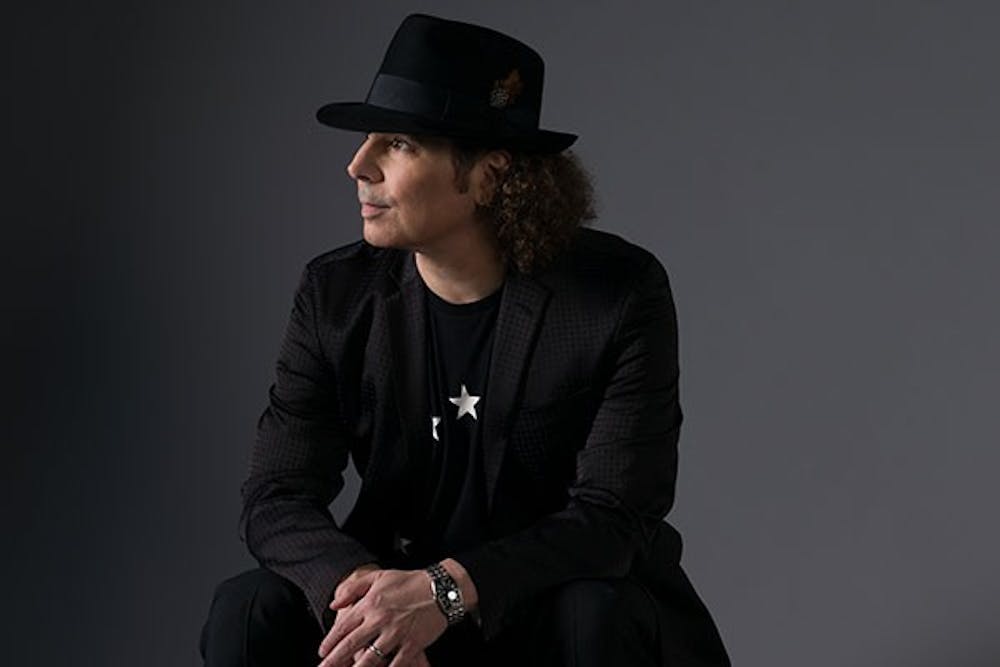Columbia jazz enthusiasts are in for a treat, as Grammy-nominated saxophonist Boney James is scheduled to kick off the third annual Columbia Winter Jazz Fest this Friday.
The three-day event, sponsored by Jazz Diva Entertainment, features performances by various musicians such as Najee, Terence Young and Alex Bugnon. Concertgoers can expect to hear Jmichael Peeples as the opening act as well as Pieces of a Dream, a jazz group hailing from Philadelphia.
Growing up New Rochelle, New York, it was common practice for elementary school students to sign up to learn an instrument and James "Boney" Oppenheim was no different. At the age of eight, he set out to rent a trumpet only to realize that the store didn’t have any, so he settled for a clarinet. Two years later, his band teacher encouraged him to switch to the saxophone and he instantly fell in love.
“You know, from an early age I was able to sort of just connect with it and feel very creative when I was playing it, and I’m still excited about it even today all these years later,” Oppenheim said.
When Oppenheim got older, he enrolled in college as a history student with law school aspirations. After his sophomore year, he realized that music was his passion and that he owed it to himself to attempt to make it a career.
For a while, he delivered pizzas while trying to break into the music industry, but by his early 20s, he was able to book enough gigs to support himself as a musician.Around this time, he earned the nickname “Boney," a reference to his thin frame.
Early on, he often worked as a sideman to artists like The Isley Brothers, Teena Marie and Morris Day. During this period in his life, he was able to learn the music industry and focus on developing as a musician. Looking back, Oppenheim believes that this experience facilitated his transition to a solo career.
“When I finally got a breakthrough as a solo artist, I had a lot of knowledge and experience, and I was able to draw on that and I think it really made things easier for me in the long run,” he said.
Oppenheim released his first record in 1992, when he was in his early 30s, and he’s been working as a solo artist ever since.
Even though Oppenheim is performing at a jazz festival, he doesn’t consider himself to be solely a jazz artist. When creating new pieces, he just goes where his influences take him and doesn’t consider the limits of genre. His music is the result of a variety of different inspirations, and it can’t be categorized as simply one thing or another.
His latest album, aptly named "futuresoul," blends the soulful sounds of the past with contemporary production. The record has been one of his most successful, as it debuted at number one on the Billboard Contemporary Jazz charts in 2015.
One can expect to hear some of this new material at his upcoming Jazz Fest performance, in addition to some old favorites. To keep his concerts fresh, Oppenheim tends to pull older tracks from his catalog that he has never played in concert. However, he insists that certain songs that fans expect to hear will always be included.
One may imagine a jazz festival concert to be slow-paced and mellow, but Oppenheim insists you can expect a lot more action and audience participation at his concert.
“We don’t play like the slow or more sort of late night tracks in the show," he said. "We can kind of concentrate more on the stuff that’s going to be able to involve the audience."
At his Columbia Winter Jazz Fest performance, old fans and new jazz listeners alike will have the opportunity to hear a veteran musician do what he loves to do. Oppenheim is fully committed to giving the audience a great show every time he takes the stage.
“I’m full of gratitude, certainly, to the fans for still being interested in the music, and I feel a tremendous responsibility to people, you know, whenever I put out a record or play a show to make sure that it’s 110 percent,” he said.
Oppenheim truly enjoys the experience of performing live and he considers it the catalyst for his pursuit of a music career. After over 20 years in the music industry, he is still happy to be touring and sharing his passion with the world.
“That feeling you get when you’re onstage and the communal experience of creating music with the band and then the audience and we’re all sort of in the same space and feeling the same thing,” he said. “It's just something really special and wonderful. It doesn’t get old, that’s for sure.”

